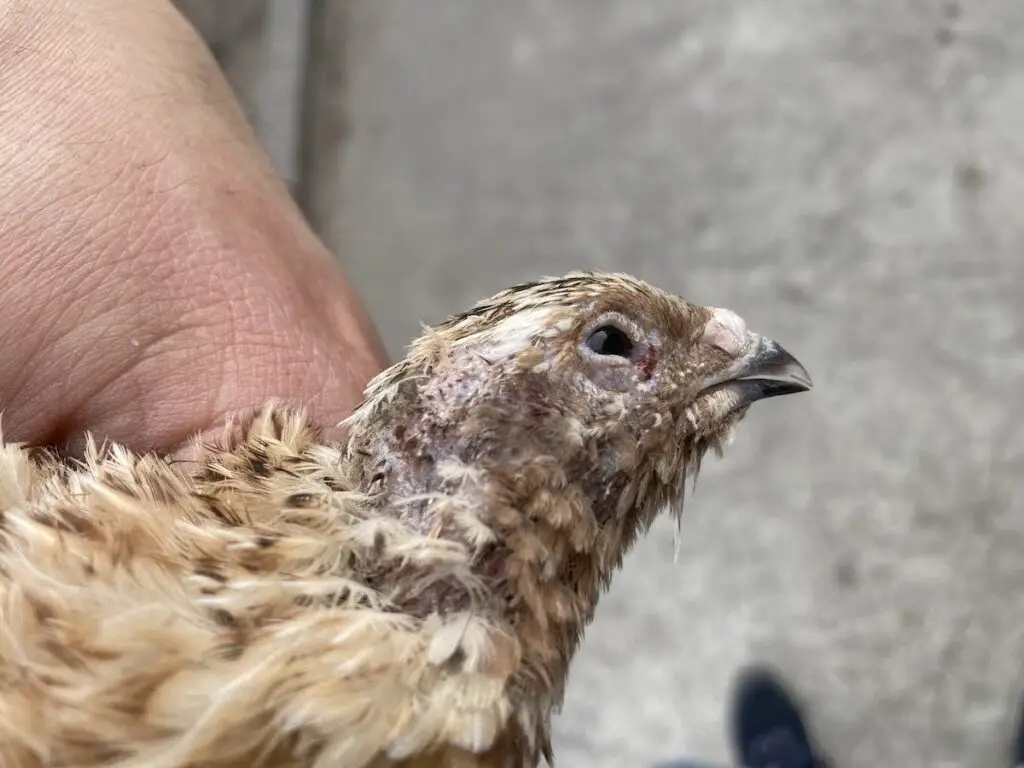Keeping any animal at home comes with responsibility. A part of being a responsible quail keeper is to know when it is time to cull them. In this article we explore when and why you should dispatch your a quail.
Quail are culled either when they reach a certain age, are injured, or show signs of illness. Quail roosters are usually dispatched when they reach their full size between weeks 8 and 12. Quail hens can be processed once they reach 1.5 years of age and stop laying eggs.
In most cases, culling means killing, but in certain instances it can mean to give the bird away to someone.
When quail are killed, they can be either processed and prepared for human consumption. Most quail keepers keep their birds for their eggs as well as their meat. They process the birds when the time comes. I wrote a full article on everything you need to know about processing quail.
Learn how to raise your own quail and have an unlimited supply of eggs and meat.
Sometimes quail are killed and fed to dogs around the house, or sold to dog or reptile breeders who feed it to their animals.
Planned culling
Planned culling is by far the most common when you raise quail. There are three main reasons why people plan on culling their quail.
Male quail (roosters) are usually culled at 8-12 weeks of hatching. By week 8 they reach 90% of their adult size, and they stop growing and putting on weight by week 12.

50% of quail are roosters in a typical hatch (I almost always get a 50-50 rooster to hen ratio). Since the only practical reason to keep roosters is to have fertile eggs, but you only need one rooster for every four-five hens, most of them are culled when they reach this age.

Quail hens are usually dispatched after they reach 1.5-2 years of age and their egg-production decreases. They are replaced with fresh, young hens that continue to provide with eggs in abundance.
Quail breeders also cull those quail that don’t display desireable traits they want to pass on to the next generation of their quail. These are some of the negative traits they want to detect and prevent from propagating:
- Physical deformity (such as crossed beak, limp etc)
- Aggressive or antisocial behavior
- Non-desirable color variation
- Small size
Culling due to injury
Culling injured quail is also quite common. When I started raising quail I didn’t think it would ever be necessary, but quail get injured quite easily. Some injuries are due to accidents while others are due to predators or aggression from other quail.
These quail are still good for eating most of the time.
One of the weakest body parts of quail is their neck. Any injury to their neck leads to death or paralysis. One of my quail got a fright when I opened the door of the hutch, and jumped up, hitting its head against the ceiling. It didn’t die, but when it landed, it was unable to get up anymore. I observed it for several hours, and it was clear that it needed to be culled.
Another common injury is due to aggression from other quail. When you relocate quail and move them in with an existing flock, some don’t mind it at all, while others don’t take to it well. Hens are usually stressed when new roosters are introduced to their cage, especially if they are dominant specimen. In these case they often get attacked by hens in the established covey. They often peck out their eyes, leaving them completely blind.
While some wounds can heal, lost eyesight is a sure slow death-sentence to quail. They will sit in one spot, not being able to orient themselves and find food and water. Processing them means that they don’t need to starve to death, and it also means a delicious meal for you.

If you have predators in your neck of the woods, you may notice some quail missing a limb or missing altogether. If you see blood and crippled quail with feathers all over the place, you know you have a predator. If you find injured quail from predation, it’s best to dispatch it, and see if you can fortify the defense of your cage.
Culling due to illness
Culling due to illness is probably (and hopefully) the least likely reason why you need to dispatch a quail. Illness in birds can have various reasons just like in humans. Not all of them are fatal, but if you keep a close eye on your covey, you can easily tell if one of your birds isn’t well. Look for signs such as:
- Isolation from others
- Loss of balance
- Disorientation
- Lethargy
- Runny poop around the isolated quail
These are tell-tale signs of illness, and you must remove the quail from the covey to avoid the possible spread of any disease. After dispatching the bird, disinfect yourself, and clean the cage to the best of your ability (I love using vinegar as a natural disinfectant).
It’s important to note that quail dispatched due to illness must never be eaten!
Culling baby quail
When you start incubating quail eggs and hatch your first batch, it’s natural to want to save and raise up as many as possible. Unfortunately quail are very frail, and quail chick mortality is common. I have not had a single hatch with 100% survival rate.
A splained leg, a quail falling out of someone’s hands or a feeder, some other object placed on a chick in the brooder, or even choking on a big piece of crum is inevitable. The early days are all about the survival of the fittest, and it’s good that the weaker ones should perish. This is how they survive as a species.
It’s common to see a baby quail dying in the brooder. I have often tried to help them survive, but I never succeeded to get them past a few extra days or weeks. I have learned that it is best to cull them in these cases. It takes no effort to dispatch them, and it doesn’t have to involve any blood: a gentle squeeze on the neck puts them out of their misery fast.
